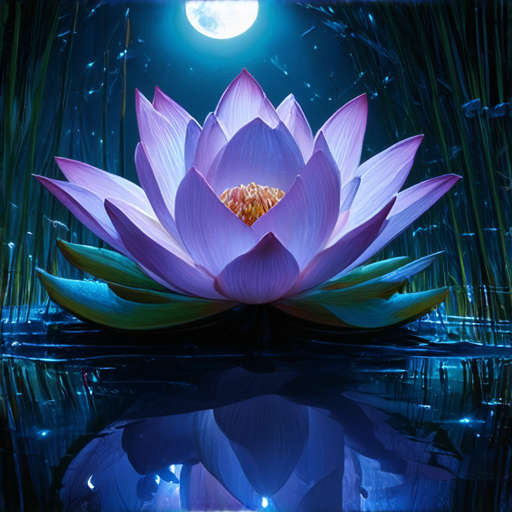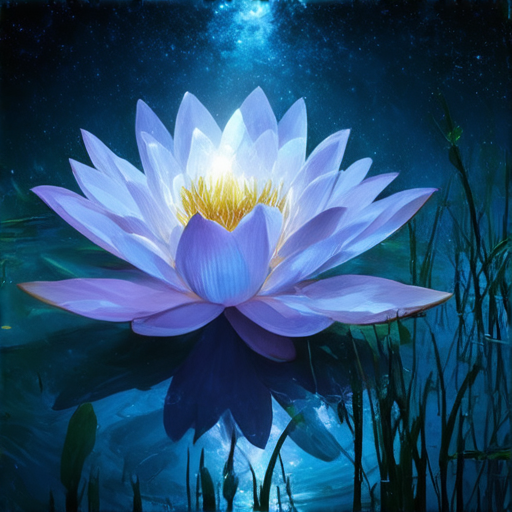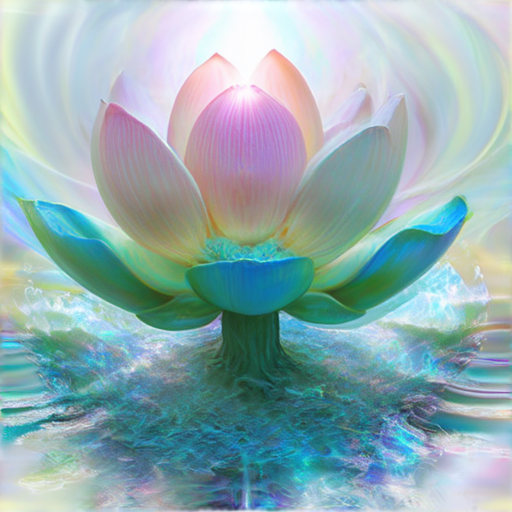Embarking on a journey of self-discovery can be a transformative experience that unlocks new levels of creativity, confidence, and fulfillment. By exploring the depths of our own minds and hearts, we can gain a deeper understanding of ourselves and the world around us. Through the lens of self-discovery, we can uncover hidden passions, develop meaningful relationships, and cultivate a sense of purpose that guides us towards a brighter future.
Self-discovery is often described as a lifelong journey, one that requires patience, courage, and an openness to new experiences and perspectives. It involves embracing uncertainty and taking risks, even when faced with fear or doubt. By doing so, we can tap into our inner wisdom and trust our intuition, allowing us to navigate life’s challenges with greater ease and clarity.
As we embark on this journey, it’s essential to approach it with a curious and non-judgmental mindset. We must be willing to confront our fears, challenge our assumptions, and explore new ways of thinking and being. By doing so, we can unlock our full potential and live a life that is authentic, meaningful, and truly fulfilling.
In this article, we’ll delve into the world of self-discovery, exploring its many facets and offering practical guidance on how to integrate it into your daily life. From understanding the concept of self-discovery to developing a self-discovery practice, we’ll cover it all – providing you with the tools and inspiration needed to embark on your own unique journey of self-discovery.

Self-Discovery Examples
Self-discovery is a lifelong process that involves gaining insight into your thoughts, feelings, and behaviors. Through self-reflection and exploration, individuals can develop a deeper understanding of themselves and their place in the world. Here are some examples of self-discovery:
- Becoming aware of your core values and beliefs
- Identifying your strengths and weaknesses
- Exploring your passions and interests
- Developing emotional intelligence and self-awareness
- Setting boundaries and prioritizing self-care
As I reflect on my own journey of self-discovery, I realize that it’s a continuous process that requires patience, curiosity, and courage. By embracing uncertainty and taking risks, I’ve been able to grow and learn more about myself.
For instance, I’ve come to understand that my core values are centered around creativity, authenticity, and connection. These values have guided me in making decisions that align with my true north and have helped me build meaningful relationships with others.
Similarly, I’ve identified my strengths and weaknesses, which has allowed me to focus on developing my skills and talents. By acknowledging my limitations, I’ve also become more humble and open to learning from others.
Through self-discovery, I’ve also explored my passions and interests, which has led me to pursue new opportunities and experiences. This has not only brought me joy and fulfillment but also helped me discover new aspects of myself.
Furthermore, I’ve developed emotional intelligence and self-awareness, which has enabled me to navigate complex emotions and relationships. By recognizing my emotions and needs, I’ve become more empathetic and compassionate towards others.
Lastly, I’ve learned to set boundaries and prioritize self-care, which has allowed me to maintain a healthy work-life balance and cultivate a sense of well-being.
By embracing these self-discovery examples, individuals can embark on their own journey of growth and transformation. Remember, self-discovery is a unique and individualized process that requires patience, kindness, and compassion towards yourself.
BetterUp offers personalized coaching and tools to support your self-discovery journey. Their expert coaches will guide you through a series of exercises and prompts to help you gain clarity and confidence in your thoughts, feelings, and actions.
Additionally, you can explore other resources such as Peter Spirito’s blog, which features inspiring stories and reflections on life’s journey. His writings offer valuable insights and perspectives on topics such as creativity, authenticity, and connection.
By incorporating these self-discovery examples and resources into your daily life, you’ll be well on your way to embarking on a transformative journey of growth and self-awareness.
Discovering Your Creative Self
- Start by reflecting on your passions and interests, and explore what sparks joy and excitement within you.
- Identify your strengths and talents: What are you naturally good at? What skills have you developed over time?
- Explore different forms of creative expression, such as art, music, writing, or dance, and see what resonates with you.
- Try creative exercises and prompts to stimulate your imagination and get out of your comfort zone.
- Surround yourself with inspiration: Read books, watch movies, attend concerts, or visit museums to fuel your creativity.
- Practice mindfulness and self-care: Taking care of your physical and mental well-being can help you tap into your creative potential.
- Write down your thoughts and feelings to process your emotions and gain insight into your creative self.
- Collaborate with others: Working with fellow creatives can lead to new ideas and perspectives.
- Take risks and experiment: Don’t be afraid to try new things and take calculated risks to discover your unique style.
- Keep a journal or sketchbook to track your progress and reflect on your growth.
- Embrace failure and learn from mistakes: View failures as opportunities to learn and grow, and don’t be discouraged by setbacks.
- Stay curious and keep learning: Continuously seek out new knowledge and experiences to stay inspired and motivated.

The Meaning of Self-Discovery
Self-discovery is the process of gaining insight into your thoughts, feelings, values, strengths, weaknesses, passions, and goals. It involves exploring your own personality, behaviors, motivations, and desires to develop a deeper understanding of who you are and what makes you unique. Through self-discovery, you can gain clarity on your purpose, develop emotional intelligence, and cultivate a stronger sense of identity.
Understanding the Importance of Self-Discovery
Self-discovery is essential for personal growth, relationships, and overall well-being. By understanding yourself better, you can:
- Develop a stronger sense of self-awareness
- Make informed decisions that align with your values and goals
- Build healthier relationships based on mutual respect and trust
- Cultivate resilience and adaptability in the face of challenges
Key Aspects of Self-Discovery
Some key aspects of self-discovery include:
- Exploring your values, needs, and wants
- Reflecting on past experiences and lessons learned
- Practicing mindfulness and self-care
Benefits of Self-Discovery
The benefits of self-discovery are numerous, including:
- Increased confidence and self-esteem
- Improved mental health and well-being
- Greater resilience and adaptability
- A clearer sense of purpose and direction
Overcoming Obstacles to Self-Discovery
Common obstacles to self-discovery include:
- Fear of uncertainty and change
- External pressures and expectations
- Negative self-talk and self-criticism
By overcoming these obstacles and embracing the process of self-discovery, you can unlock a deeper understanding of yourself and live a more fulfilling, purpose-driven life.
Self-Discovery Journey
- Start by reflecting on your values, passions, and long-term goals.
- Identify your strengths and weaknesses: Take an honest assessment of your skills, personality traits, and areas for improvement.
- Explore various tools and techniques such as journaling, meditation, and therapy to help you navigate your journey.
- Seek feedback from others: Ask trusted friends, family members, or mentors for their insights and perspectives on your growth and development.
- Create a personalized plan outlining specific steps you’ll take to work towards your goals and overcome obstacles.
- Practice mindfulness and self-care: Regularly engage in activities that promote relaxation, stress reduction, and overall well-being.
- Read books and articles on personal development and self-improvement to gain new insights and inspiration.
- Be patient and persistent: Self-discovery is a lifelong process, and it’s essential to stay committed to your journey despite setbacks and challenges.
The Three Pillars of Self-Discovery
- Self-Awareness: Understanding yourself, your values, and your goals is crucial for self-discovery. It involves recognizing your strengths and weaknesses, understanding your emotions, and developing a deeper connection with yourself.
- Personal Growth: Personal growth is essential for self-discovery as it helps you develop new skills, challenge yourself, and become a better version of yourself. It involves setting goals, working towards them, and learning from your mistakes.
- Introspection: Introspection is the process of examining your thoughts, feelings, and behaviors to gain a deeper understanding of yourself. It involves reflecting on your experiences, identifying patterns and habits, and making positive changes in your life.
By focusing on these three pillars, you can embark on a journey of self-discovery that leads to greater self-awareness, personal growth, and a deeper understanding of yourself.
For instance, you can start by practicing mindfulness and meditation to increase your self-awareness. You can also set aside time for journaling and reflection to explore your thoughts and feelings.
Additionally, seeking out new experiences and challenges can help you grow personally and develop new skills. This could involve trying new hobbies, taking on new responsibilities, or pursuing further education.
Lastly, introspection is an essential part of self-discovery. By regularly examining your thoughts, feelings, and behaviors, you can identify areas for improvement and work towards becoming a better version of yourself.
You can learn more about self-discovery and how to apply these principles in your own life by visiting Peter Spirito’s website.

The Best Therapy for Self-Discovery
I’ve found that mindfulness-based therapies, such as Mindfulness-Based Stress Reduction (MBSR) and Mindfulness-Based Cognitive Therapy (MBCT), are highly effective in cultivating self-awareness and acceptance, which are essential for personal growth and self-discovery.
- Self-Inquiry Therapy: This type of therapy involves asking yourself questions about your thoughts, feelings, and behaviors to gain a deeper understanding of yourself.
- Cognitive-Behavioral Therapy (CBT): CBT helps you identify and change negative thought patterns and behaviors that may be holding you back from achieving your goals.
- Humanistic Psychology: This approach focuses on personal growth and self-actualization, helping you to understand your values and goals, and live a more authentic life.
Another effective approach is to explore your interests and passions, and find ways to incorporate them into your daily life. For example, you could try self-discovery exercises or personality tests to gain a better understanding of yourself.
Competitors and Alternatives
While there are many therapists and programs available, I’ve found that my own program offers a unique and personalized approach to self-discovery.
Conclusion
In conclusion, the best therapy for self-discovery is one that is tailored to your individual needs and goals. By exploring mindfulness-based therapies, self-inquiry, cognitive-behavioral therapy, humanistic psychology, and finding ways to incorporate your interests and passions into your daily life, you can embark on a journey of self-discovery and growth.

0 Comments